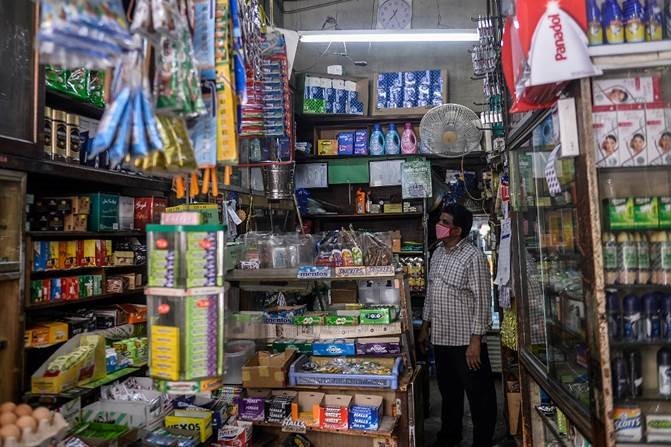
KUALA LUMPUR, Dec 16 — The government has implemented various programmes to support and empower small and medium enterprises (SMEs) and micro-SME entrepreneurs in 2020, including enhancing their access to financing, as they grappled with the devastating effects of the Covid-19 pandemic.
Among the highlights of the year was the aid provided under the Prihatin Rakyat Economic Stimulus Package (Prihatin) as well as Additional Prihatin SME Economic Stimulus Package (Prihatin SME Plus) announced in March and early April, respectively, to assist SMEs and micro SMEs by easing their financial burden.
The two packages, which amounted to RM250 billion and RM10 billion respectively, offered an additional RM3 billion Special Relief Facility, RM700 million micro-credit scheme with zero interest rate through Bank Simpanan Nasional, RM2.1 billion Special Prihatin Grant targeted to benefit about 700,000 micro enterprises, and RM13.8 billion Wage Subsidy Programme which was expected to benefit 4.8 million workers.
The government also directed banking institutions and government agencies such as Tekun Nasional and Majlis Amanah Rakyat to offer a six-month loan repayment moratorium.
This was in addition to rental waiver or discounts given to SMEs in the retail sector that operated on premises owned by government-linked companies.
Furthermore, under the National Economic Recovery Plan (Penjana) announced on June 5, the government introduced the Penjana SME Financing Scheme whereby SMEs could apply for working capital loans of up to RM500,000 from banks.
As of Nov 27, 5,301 SME applications with a financing value of RM1.09 billion had been approved under this scheme.
According to the Prime Minister Tan Sri Muhyiddin Yassin, the government is committed to help SMEs weather the economic challenges, especially with the cash flow problems, and will ensure that local SME sector remains resilient.
The prime minister said this is because the SMEs is a key sector, accounting for more than two-thirds of the jobs in the country and contributed almost 40 per cent of the Malaysian economy.
Finance Minister Tengku Datuk Seri Zafrul Abdul Aziz said that as of Nov 27, the government had provided assistance amounting to over RM24 billion that benefitted over 1.4 million micro businesses and SMEs.
Last month, the Entrepreneur Development and Cooperatives Ministry said the Companies Commission of Malaysia recorded a total of 281,781 registration of new businesses entities between March and October this year, far more than the 31,190 business entities that filed for cessation within the same period.
Its minister, Datuk Seri Wan Junaidi Tuanku Jaafar, said the bulk of newly registered business entities in the March-October period consisted of sole proprietors and partnerships (89.3 per cent), followed by companies (9.8 per cent) and limited liability partnerships (0.8 per cent).
He was responding to a report quoting SME Association of Malaysia national president Datuk Michael Kang Hua Keong as saying that many SMEs had closed down operations since the Movement Control Order was imposed in March.
Based on data published by the Department of Statistics, SMEs account for more than 90 per cent of the total business establishments in Malaysia.
Last year, SME activities were mainly in the services sector (with a contribution of 63.3 per cent to SMEs’ GDP), followed by the manufacturing sector (19.8 per cent), agriculture sector (1.1 per cent), construction sector (5.6 per cent), and mining and quarrying sector (0.5 per cent).
This year also witnessed more SMEs embracing digitalisation and strengthening their businesses through the e-commerce platform following the Movement Control Order (MCO) enforced beginning March as they were operating within limitations due to the pandemic.
Kang of SME Association said according to the association’s survey in September, about 50 per cent of SMEs had started moving into digitalisation while the rest still needed some time or did not have it in the plan yet.
“After the MCO, the majority of SMEs need to restart and restructure their business. Thus they need to transform their business online,” he told Bernama.
The government has allocated a total of RM140 million to roll out the Micros and SMEs e-Commerce Campaign to encourage the adoption of e-commerce and Shop Malaysia Online to encourage online consumer consumption.
Through the collaboration between the Ministry of Finance and Malaysia Digital Economy Corporation, these initiatives have generated a combined sales of over RM1.2 billion and assisted over 21,000 micro and SME entrepreneurs.
There are also SME Business Digitalisation Grant initiatives where RM14.6 million matching grants had been approved to 5,087 eligible SMEs to help them onboard to shift towards business digitalisation.
Moving forward, Bank Islam Malaysia Bhd chief economist Mohd Afzanizam Abdul Rashid said the future of SMEs should be positive in tandem with the expected improvement in the economy next year.
“The economic shocks should provide them an avenue to rethink their business strategy because they could see how recession can really affect their businesses.
“They should also be able to upgrade themselves especially in respect to digitalisation so they would remain competitive,” he said.
Source: https://www.malaymail.com/news/money/2020/12/16/govt-assist-smes-to-survive-boost-competitiveness-amid-covid-19-economy/1932360

